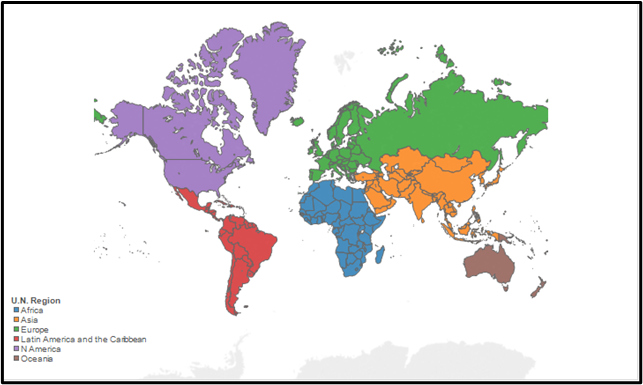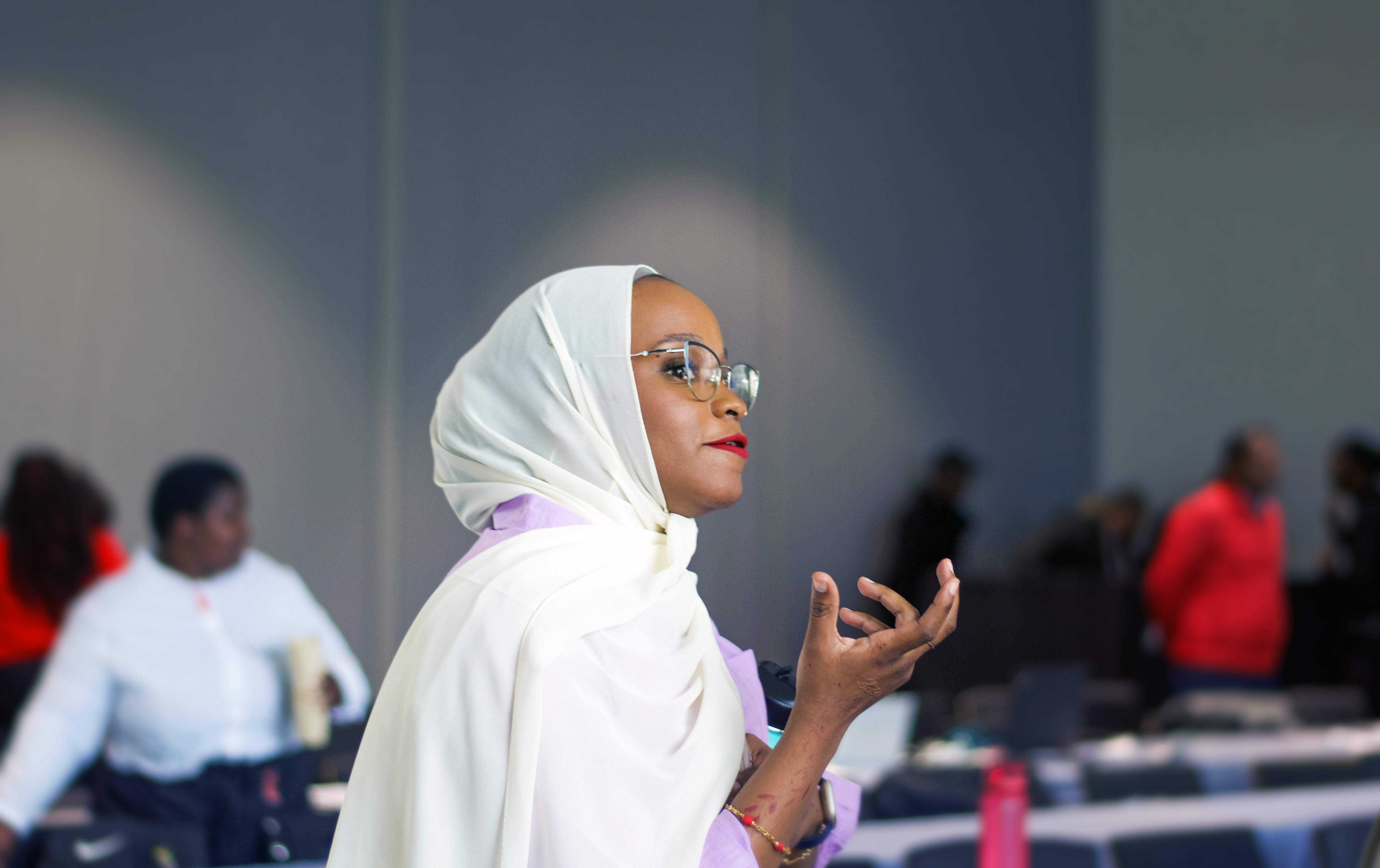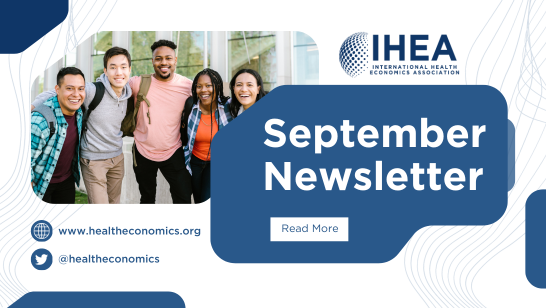To access the full PDF click here.
Update on IHEA Governance Structures
Changes in IHEA’s governance structures, including the Board and all Committees, is a priority in our Equality, Diversity and Inclusion (EDI) policy and strategy.
Major changes to the IHEA Bylaws and Board composition were introduced in 2017. In addition to taking steps to promote greater gender diversity on the Board, we worked to ensure that there is at least one Board Director from each of the UN geographic regions (see map below). Most of these Board Directors are nominated by regional or large national health economics associations as IHEA seeks to maintain strong links with these associations to promote collaboration, avoid duplication of efforts, and maximize benefits for health economists around the world. The 2017 changes also ensured that at least one Board Director is an early career researcher (ECR).

The approach of having Board Directors nominated by regional associations undoubtedly has promoted geographic diversity on the Board. However, some areas do not have regional associations, particularly in Asia. The Board agreed at its meeting in July that there should be two Board Directors who live and work in Asia, one from Eastern and South-Eastern Asia, and one from Southern, Central and Western Asia. There previously has been and presently is a Board Director from the first sub-region, but there is a gap in representation from the second sub-region. To address this, an election will be held in 2023 for a Board Director who lives and works in Southern, Central or Western Asia (see details elsewhere in this newsletter).
IHEA will be revisiting the current Bylaws, particularly in relation to Board composition, through Board discussions and engaging with membership over the next year. We will consider options for promoting greater inclusion and diversity within the context of the distribution of IHEA members, and the balance between association-appointed and elected Board Directors, among other issues. We will organize various forums for engagement, but welcome suggestions and feedback at any time about how to ensure a governance structure that best represents our members (please send to diane.mcintyre@healtheconomics.org (IHEA Executive Director) or kara.hanson@lshtm.ac.uk (IHEA President-Elect).
IHEA Board Election – Call for Nominations
IHEA will hold elections in November/December for President-Elect and one new Board Director.
The President-Elect, who serves a six-year term (two years as President-Elect, two years as President, and two years as Past-President), is to be elected by the membership from a slate of at least two candidates.
To further strengthen geographic diversity on the Board, the election for a Board Director to serve a four-year term, beginning January 1st, 2024, will focus on health economists living and working in Southern, Central and Western Asia (see full list of countries in these sub-regions below).
More details on the Board composition can be seen here and the IHEA Bylaws can be found here.
Interested members of IHEA who are willing to contribute to the running and further development of the association are encouraged to express their interest by sending their CV and a letter of motivation, which should include information on how the nominee meets the IHEA Bylaws’ criteria outlined below. The letter should indicate which of the positions the interest relates to (i.e., President-Elect or Board Director from Southern, Central or Western Asia). A Board Search Committee will oversee that candidates fulfill the following criteria specified in IHEA’s Bylaws:
- Candidates for President-Elect should:
- be an internationally known economist working on health and health care,
- be an IHEA member for at least the previous five (5) years, who has made important contributions to IHEA by having served on the Board, a Board committee (such as the Arrow Award, Student Prize, Finance or similar committee) or the Congress local organizing committee,
- have networking skills and international connections, and
- be willing to be an active President and build programs for IHEA.
- Candidates for Board Director should be:
- an economist working on health and health care, and
- an IHEA member for at least the previous two (2) years.
In addition, Board Director nominees must be a citizen of, and live and work in, a country in Southern, Central and Western Asia
Please send an expression of interest to ihea@healtheconomics.org by October 30, 2023. If you would like any further information, please contact the Chair of the Board Search Committee, Winnie Yip (wyip@hsph.harvard.edu).
In the first half of November, the Board Search Committee will review all expressions of interest and their recommendations will be considered by the IHEA Board. All those who have expressed their interest will receive feedback from the Board Search Committee. Candidates for election will be provided with an opportunity to prepare an election statement and related materials that will be uploaded onto the IHEA website. Opportunities to engage with the candidates will be provided.
List of countries in Southern, Central and Western Asian Sub-regions:
| Afghanistan | Southern Asia |
| Bangladesh | Southern Asia |
| Bhutan | Southern Asia |
| India | Southern Asia |
| Iran (Islamic Republic of) | Southern Asia |
| Maldives | Southern Asia |
| Nepal | Southern Asia |
| Pakistan | Southern Asia |
| Sri Lanka | Southern Asia |
| Kazakhstan | Central Asia |
| Kyrgyzstan | Central Asia |
| Tajikistan | Central Asia |
| Turkmenistan | Central Asia |
| Uzbekistan | Central Asia |
| Armenia | Western Asia |
| Azerbaijan | Western Asia |
| Bahrain | Western Asia |
| Cyprus | Western Asia |
| Georgia | Western Asia |
| Iraq | Western Asia |
| Israel | Western Asia |
| Jordan | Western Asia |
| Kuwait | Western Asia |
| Lebanon | Western Asia |
| Oman | Western Asia |
| Qatar | Western Asia |
| Saudi Arabia | Western Asia |
| State of Palestine | Western Asia |
| Syrian Arab Republic | Western Asia |
| Türkiye | Western Asia |
| United Arab Emirates | Western Asia |
| Yemen | Western Asia |
Call for Nominations for the 2023 Student Paper Prize
Deadline: Thursday January 18, 2024
The International Health Economics Association (IHEA) is pleased to invite nominations for the Annual Student Paper Prize in Health Economics. Nominations should include a brief letter of nomination (250 words max) and a copy of the paper (preferably .pdf). As an International Association, IHEA highly encourages those from around the globe to share this call with their networks and submit their papers for consideration.
A student is defined as someone currently studying (full or part time) at a higher education institution, at either Masters or Doctoral level. In addition, students who have completed their studies in the year previous to the announcement qualify as long as the paper was written while registered as a student.
Papers can be published or unpublished, but must be in comparable format to a published paper in Journal of Health Economics or Health Economics, and have a maximum length 8,000 words. Self-nomination is acceptable. Papers should be in English. If a submitted paper has more than one author, the student contribution must be at least 75% overall and an accompanying letter must be signed by co-authors to support this, stating the nature of their contribution (conceptualization, analysis, writing etc.). A joint student paper with 50-50 contributions is acceptable. Previous winners are not eligible.
Papers will be reviewed by an International Committee chaired by Professor Tinna Laufey Ásgeirsdóttir.
The Prize will be free registration for the 2025 IHEA Congress to present the paper in a Student Prize Special Organised Session chaired by the IHEA President, or Chair of the Prize Committee, a cash prize and the offer (if the author wishes, and the paper is unpublished) of potential fast track publication in Health Economics, subject to editorial approval. The papers in 2nd and 3rd place will receive a small cash prize and free registration for the 2025 IHEA Congress. They will be invited to give brief presentations at the IHEA Congress Student Prize Special Organized Session.
Please submit nominations, and address queries, by email to: ta@hi.is
IHEA Pre-Congress Reflections
Immunization Economics Pre-Congress: Defining Priorities and Promoting Collaboration
Over 150 participants from 42 countries attended the Immunization Economics Pre-Congress event at IHEA in July. Over two (2) days, attendees enjoyed sessions covering a range of topics across the latest research and methods, including immunization costing, cost of illness, value of vaccines, immunization financing, budget execution, priority setting, donor transitions, use of evidence, and collaborating as a community of practice. You can read the list of research priorities below which emerged during the presentations and discussions. The Pre-Congress also featured a poster session with 27 posters.

You can read the meeting report, look through the presentations and speaker bios, view the posters, see the photos from the event and watch the recordings of some sessions. After the Pre-Congress we spoke with Lili Nur Indah Sari, based in Indonesia, and Noemi Schramm Ndao, based in Senegal, to find out what they took away from the sessions and how they will apply what they learned in their work.
Immunization Economics Research Priorities
- The cost, cost-effectiveness, and efficiency of reaching zero dose children in different contexts, including targeted local interventions, campaigns, but also strengthening the PHC system.
- Integration of services, even beyond health, as opposed to the incremental cost of adding immunization services, and lessons learned from the C19 pandemic around this.
- Cost, cost-effectiveness, and investment cases of new vaccines will remain necessary as they enter the market or as their recommended schedules change.
- The rate of return of investing in stockpiles of vaccines (such as those of yellow fever and cholera vaccines, Ebola, etc.)
- Increased focus on developing economic evidence for subnational level stakeholders and implementers.
- Evidence around budget execution and practical experiences at national and subnational levels, and identifying best practices in improving the use of evidence in planning, budgeting, and decision-making.
Pre-Congress Workshop: Anticipating the Potential Impacts of the Inflation Reduction Act (IRA) in the U.S.: What Can be Learnt from Global Experience on the Impact of Price Regulation on Patient Access and Equity of Access?
The Inflation Reduction Act (IRA) in the U.S. contains measures to curb Federal spending on medicines. The impact of these measures is uncertain. In a workshop facilitated by the Office of Health Economics at IHEA, we hypothesised and explored with the audience what those impacts might be and whether we should be concerned about implications for equity.. The session was not recorded, but you can view the slides online here.
Upcoming Webinars
PhDs with an Interest in Using Equity-Informative Economic Evaluation
Date: November 28, 2023
Time: 8:00 – 9:00 am EST, 1:00 – 2:00 pm GMT
Featuring speakers: James Oguta & Katie Snyman
James Oguta is currently studying for a PhD in health economics and decision science at University of Sheffield, UK. His research focuses on decision modelling for cardiovascular disease prevention in sub-saharan Africa. James has a wealth of experience working in areas such as health financing, public financial management, nursing, public health, research, accounting, banking, and project management, primarily in Kenya.
Katie Snyman works in Uganda and is researching equity informed economic evaluation of novel malaria control strategies. She is also an experienced project manager with a demonstrated history of working in international research settings.
Chairs: Naomi Kate Gibbs and Saudamini Dabak
This webinar has a special focus on PhD students who wish to incorporate an equity focus within their research. We will be hearing from James Oguta who is near the beginning of his PhD. He will be explaining the context of his work and the key plans and questions he has around incorporating equity into the work. We will then hear from Katherine Snyman who is coming to the end of her PhD. She will present her findings and the process she has undertaken to incorporate equity. There will be time for discussion following both presentations before splitting into smaller discussion groups where people are welcome to bring their own questions and ideas.
Check out the full event list here.
Did you know?
All sessions at the 2023 congress were recorded and registered delegates can view these recordings via the program platform here. So, if there was a session you missed during the congress, why not view it now.

